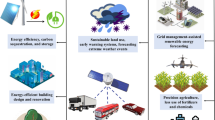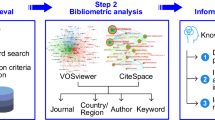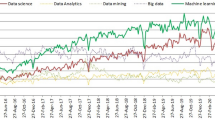Abstract
Modern buildings face rising energy demands due to factors such as population growth, urbanization, and increased reliance on technology. Therefore, a Diagonally Masked Fusion Network (DMFN) is proposed, which involves predicting energy demand or generation based on intricate weather conditions, historical data, and known future inputs. The Multi-Head Diagonally Masked Attention mechanism enhances accuracy by considering both seasonal and historical holiday patterns, optimizing forecasts for diverse conditions. Diagonal masking in the attention mechanism ensures that attention remains focused on past information, preventing the model from relying on future data during predictions. The forecasting output provides real-time insights into future energy demand or generation patterns based on anticipated weather conditions, historical data, and known future inputs. This information allows energy managers to proactively understand how energy requirements might fluctuate in the coming hours or days. Based on the collected data and forecasts, Alpha-Guided Dwarf Mongoose (AGDM) Optimization is applied to determine the optimal operation schedule for DERs, considering grid constraints, cost minimization, and energy efficiency. The simulation results show that this approach ensures that DERs are utilized efficiently, matching energy supply and demand, and minimizing the operational cost.







Similar content being viewed by others
Data availability statement
No data available.
References
Aurangzeb K (2019) Short term power load forecasting using machine learning models for energy management in a smart community. In: 2019 international conference on computer and information sciences (ICCIS). IEEE, pp 1–6
Alhussein M, Haider SI, Aurangzeb K (2019) Micro grid-level energy management approach based on short-term forecasting of wind speed and solar irradiance. Energies 12(8):1487
Muttaqi KM, Sutanto D (2021) Adaptive and predictive energy management strategy for real-time optimal power dispatch from VPPs integrated with renewable energy and energy storage. IEEE Trans Ind Appl 57(3):1958–1972
Yuan D, Lu Z, Zhang J, Li X (2019) A hybrid prediction-based micro grid energy management strategy considering demand-side response and data interruption. Int J Electr Power Energy Syst 113:139–153
Darshi R, Shamaghdari S, Jalali A, Arasteh H (2023) Decentralized energy management system for smart microgrids using reinforcement learning. IET Gener Transm Distrib 17(9):2142–2155
Ali S, Zheng Z, Aillerie M, Sawicki JP, Pera MC, Hissel D (2021) A review of DC Micro grid energy management systems dedicated to residential applications. Energies 14(14):4308
Sierla S, Pourakbari-Kasmaei M, Vyatkin V (2022) A taxonomy of machine learning applications for virtual power plants and home/building energy management systems. Autom Constr 136:104174
Liu CH, Gu JC, Yang MT (2021) A simplified LSTM neural networks for one day-ahead solar power forecasting. IEEE Access 9:17174–17195
Zhu J, Yang Z, Mourshed M, Guo Y, Zhou Y, Chang Y, Wei Y, Feng S (2019) Electric vehicle charging load forecasting: a comparative study of deep learning approaches. Energies 12(14):2692
Yang S, Gao HO, You F (2023) Building electrification and carbon emissions: Integrated energy management considering the dynamics of the electricity mix and pricing. Adv Appl Energy 10:100141
Zheng C, Eskandari M, Li M, Sun Z (2022) GA—reinforced deep neural network for net electric load forecasting in micro grids with renewable energy resources for scheduling battery energy storage systems. Algorithms 15(10):338
Liu X, Zhao M, Wei Z, Lu M (2022) The energy management and economic optimization scheduling of microgrid based on Coloured Petri net and Quantum-PSO algorithm. Sustain Energy Technol Assess 53:102670
Ullah I, Hussain I, Singh M (2020) Exploiting grasshopper and cuckoo search bio-inspired optimization algorithms for industrial energy management system: smart industries. Electronics 9(1):105
Bukar AL, Tan CW, Yiew LK, Ayop R, Tan WS (2020) A rule-based energy management scheme for long-term optimal capacity planning of grid-independent micro grid optimized by multi-objective grasshopper optimization algorithm. Energy Convers Manag 221:113161
Arjomandi-Nezhad A, Ahmadi A, Taheri S, Fotuhi-Firuzabad M, Moeini-Aghtaie M, Lehtonen M (2022) Pandemic-aware day-ahead demand forecasting using ensemble learning. IEEE Access 10:7098–7106
You M, Wang Q, Sun H, Castro I, Jiang J (2022) Digital twins based day-ahead integrated energy system scheduling under load and renewable energy uncertainties. Appl Energy 305:117899
Zhao Z, Guo J, Luo X, Lai CS, Yang P, Lai LL, Li P, Guerrero JM, Shahidehpour M (2022) Distributed robust model predictive control-based energy management strategy for islanded multi-micro grids considering uncertainty. IEEE Trans Smart Grid 13(3):2107–2120
Zhou F, Li Y, Wang W, Pan C (2022) Integrated energy management of a smart community with electric vehicle charging using scenario based stochastic model predictive control. Energy Build 260:111916
Pallonetto F, Jin C, Mangina E (2022) Forecast electricity demand in commercial building with machine learning models to enable demand response programs. Energy AI 7:100121
Ishaq M, Kwon S (2021) Short-term energy forecasting framework using an ensemble deep learning approach. IEEE Access 9:94262–94271
Jnr EO, Ziggah YY, Relvas S (2021) Hybrid ensemble intelligent model based on wavelet transform, swarm intelligence and artificial neural network for electricity demand forecasting. Sustain Cities Soc 66:102679
Shaqour A, Ono T, Hagishima A, Farzaneh H (2022) Electrical demand aggregation effects on the performance of deep learning-based short-term load forecasting of a residential building. Energy AI 8:100141
Wang J, Chen X, Zhang F, Chen F, Xin Y (2021) Building load forecasting using deep neural network with efficient feature fusion. J Modern Power Syst Clean Energy 9(1):160–169
Pigott A, Crozier C, Baker K, Nagy Z (2022) Grid learn: multi agent reinforcement learning for grid-aware building energy management. Electr Power Syst Res 213:108521
Ghazimirsaeid SS, Jonban MS, Mudiyanselage MW, Marzband M, Martinez JL, Abusorrah A (2023) Multi-agent-based energy management of multiple grid-connected green buildings. J Build Eng 74:106866
Hussain MS, Kazmi SA, Khan ZA, Alghassab M, Altamimi A (2022) Hierarchical energy management system with a local competitive power market for inter-connected multi-smart buildings. IEEE Access 10:19493–19506
Zou Z, Yu X, Ergan S (2020) Towards optimal control of air handling units using deep reinforcement learning and recurrent neural network. Build Environ 168:106535
Coraci D, Brandi S, Capozzoli A (2023) Effective pre-training of a deep reinforcement learning agent by means of long short-term memory models for thermal energy management in buildings. Energy Convers Manag 291:117303
https://www.kaggle.com/jonathandumas/liege-microgrid-open-data
Funding
There is no funding for this study.
Author information
Authors and Affiliations
Contributions
All the authors have participated in writing the manuscript and have revised the final version. All authors read and approved the final manuscript.
Corresponding author
Ethics declarations
Conflict of interest
Authors declare that they have no conflict of interest.
Ethical approval
This article does not contain any studies with human participants and/or animals performed by any of the authors.
Informed consent
There is no informed consent for this study.
Additional information
Publisher's Note
Springer Nature remains neutral with regard to jurisdictional claims in published maps and institutional affiliations.
Rights and permissions
Springer Nature or its licensor (e.g. a society or other partner) holds exclusive rights to this article under a publishing agreement with the author(s) or other rightsholder(s); author self-archiving of the accepted manuscript version of this article is solely governed by the terms of such publishing agreement and applicable law.
About this article
Cite this article
Senthil Kumar, S., Srinivasan, C. & Sridhar, P. Enhancing grid stability and efficiency in buildings through forecasting and intelligent energy management of distributed energy resources. Electr Eng (2024). https://doi.org/10.1007/s00202-024-02453-1
Received:
Accepted:
Published:
DOI: https://doi.org/10.1007/s00202-024-02453-1




